Talking with Dominika Zarzycka, in admiration of Evia residents following the aftermath of the devastating wildfires on the island. Zarycka points to how her photography aims to showcase the strength of the communities affected and their connection with the soil and sea.
After the Scorch – An Interview with Dominika Zarzycka.
When her typical photojournalistic projects were put on hold during the pandemic, Dominika Zarzycka from IMAGO Agency Partner Nurphoto turned to climate change, and recently documented the aftermath of the wildfires which ravaged the small Greek island of Evia. Not only did she cover the impacts on nature but also the residents of the island, their livelihoods and the problems the island faces moving forward. Imago spoke to Zarzycka about her work and the future of the climate crisis.
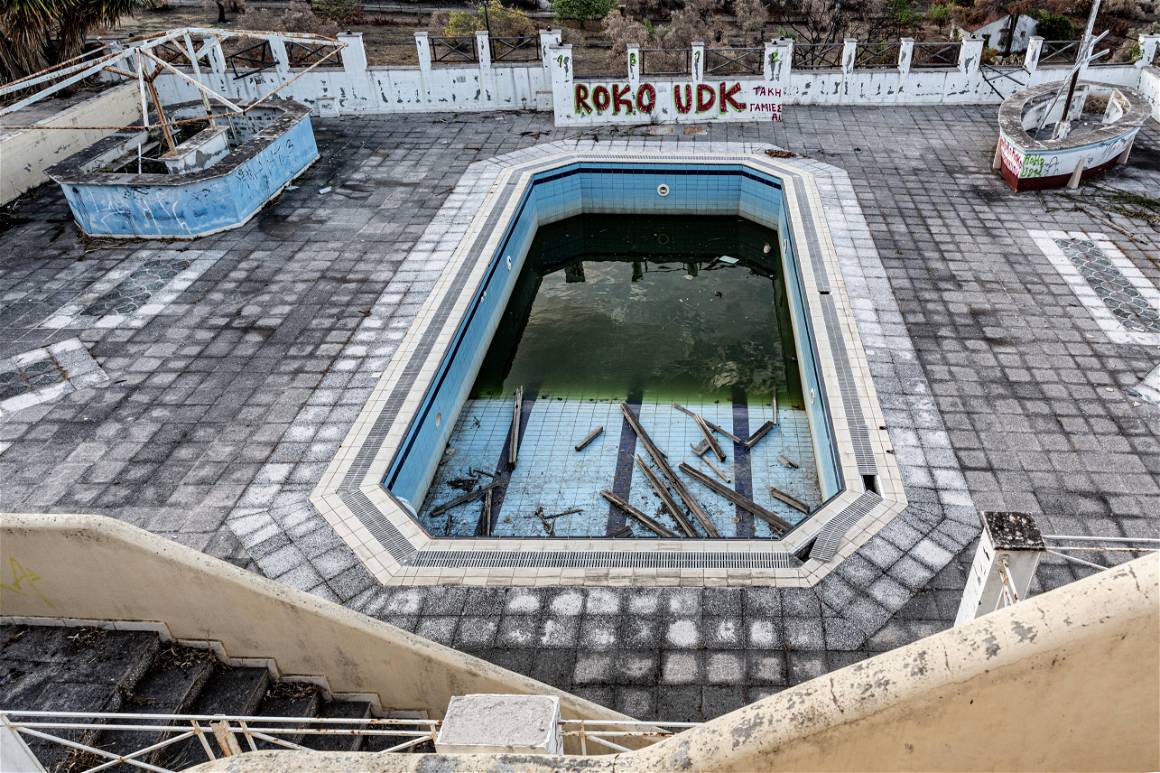
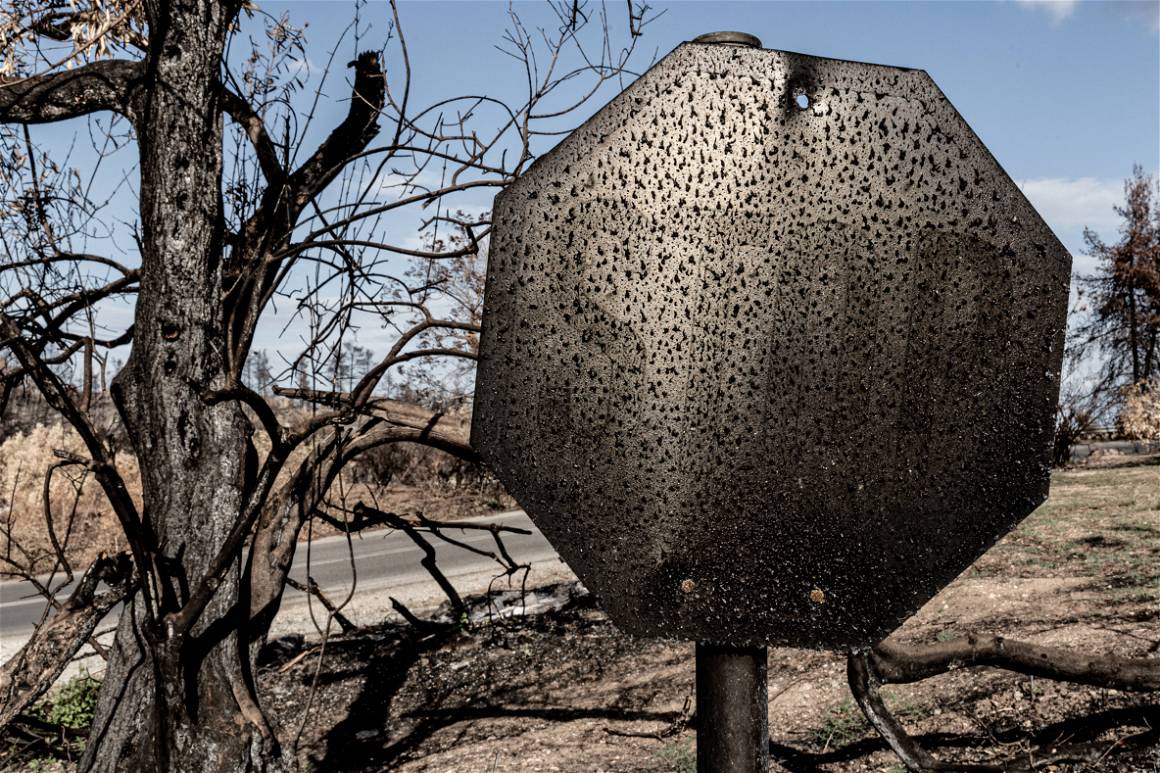
First off, tell me about yourself and what kinds of subject matter you focus on — is documenting the impacts of climate change something you are drawn to?
Nature and environmental issues were always very close to my heart. But it was only until the beginning of the Coronavirus pandemic that I saw an opportunity to focus on what I am really interested in. I asked myself some fundamental questions about the value of my work and was able to shift my life. During lockdown many of my day to day news jobs were put on hold and I had the time to focus on individual projects. I knew I wished to focus on the current climate crisis. I enrolled in a few online university courses on climate change which provided me with necessary understanding of how and why the climate changes and what are the signs of the change. Now I have the basis to develop more in depth projects on climate. Deforestation and its role in the carbon cycle is one of the main subjects I am interested in.
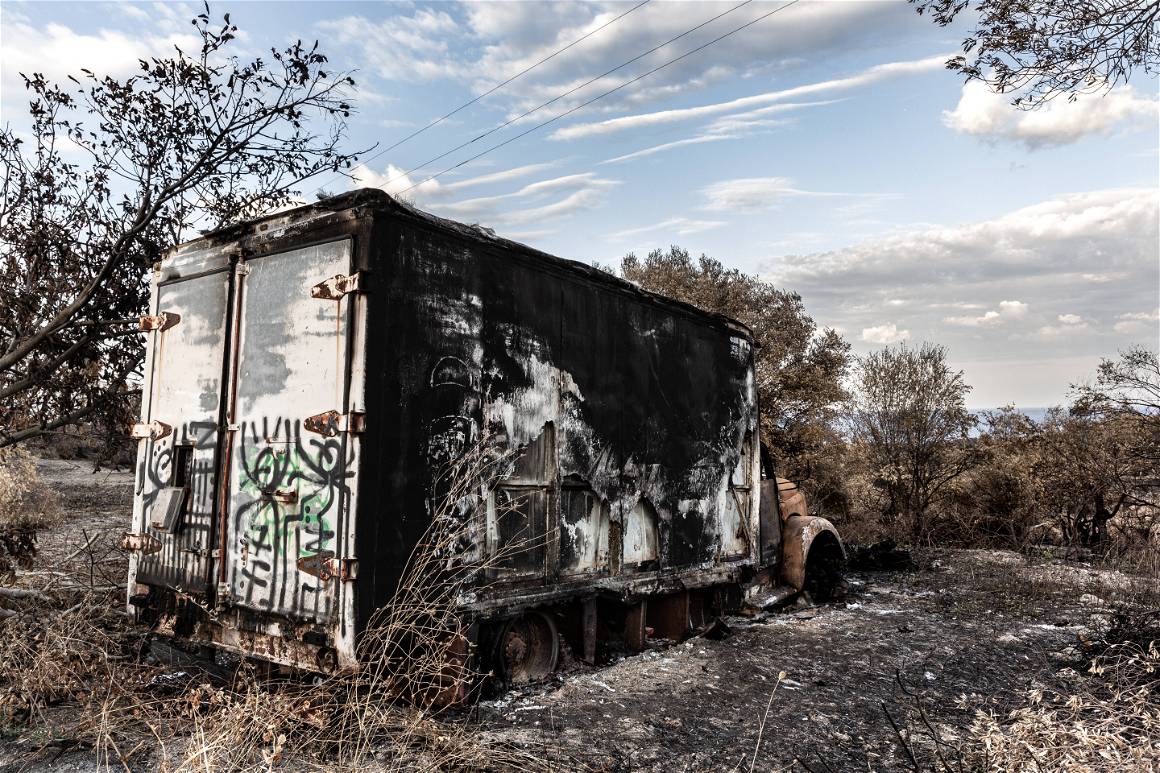
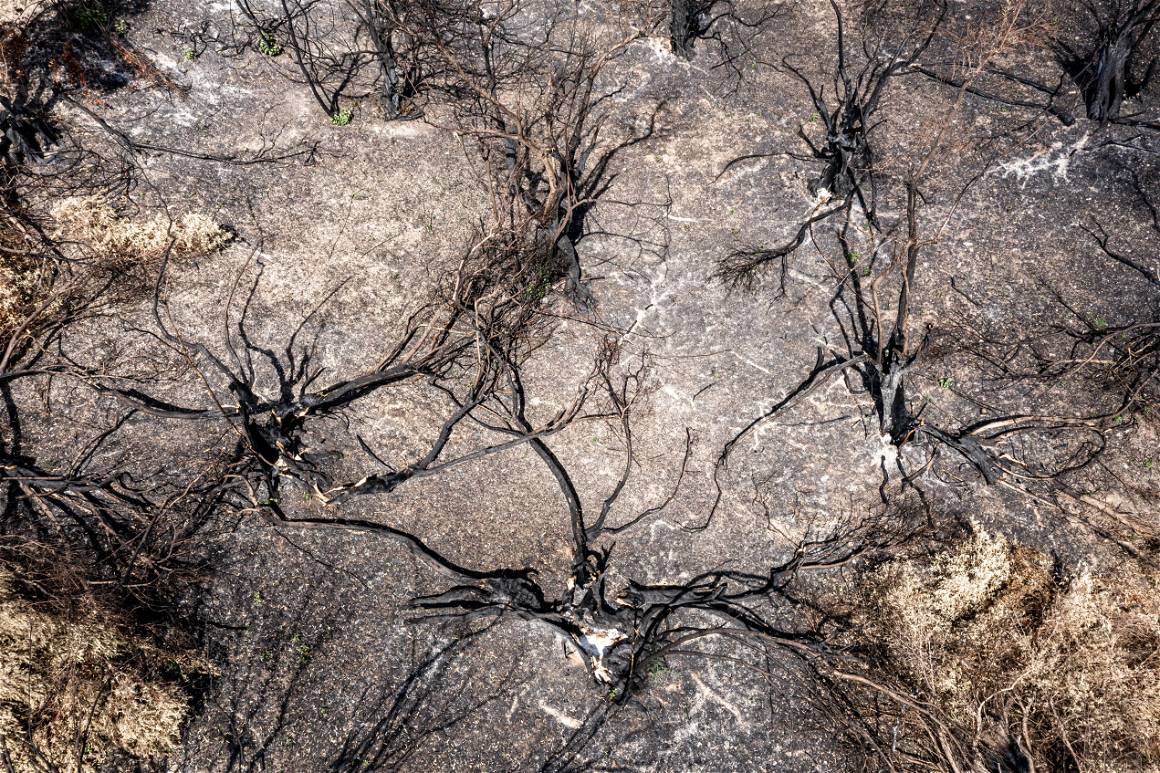
The wildfires on Evia started in early August, can you walk me through the unfolding of events and what brought you to document the fires?
Wildfires on Evia in Greece are not the first and unfortunately, not the last we will observe. Wildfires are nothing new but it is the scale and the reasons behind current fires that we should worry about. These extreme events create a very worrying new pattern. Prolonged extreme high temperatures which we observe cause forests in Europe to be more vulnerable. 2021 wildfires on Evia are only a fraction of the general problem that we will face in the years to come. This heartbreaking devastation must bring discussion and hopefully solutions on how to protect the forest and biodiversity. Forest should be at the heart of our policies.
It seemed like the whole world was watching as the island went ablaze — but many of your images depict the aftermath and destruction of the fires. What do you hope to achieve with your photos?
We need to remember that wildfires are not only an immediate danger for local people and tourists. We should not forget that the consequences of the fires will be felt for years to come. It will take many years before new olive trees will grow and rebuild local agriculture, it will take years to bring back the fresh air and water contaminated by the dust. Again, it will take many years before the tourists will be able to enjoy the beauty of this – used to – green island. There also are invisible consequences – more CO2 in the atmosphere.
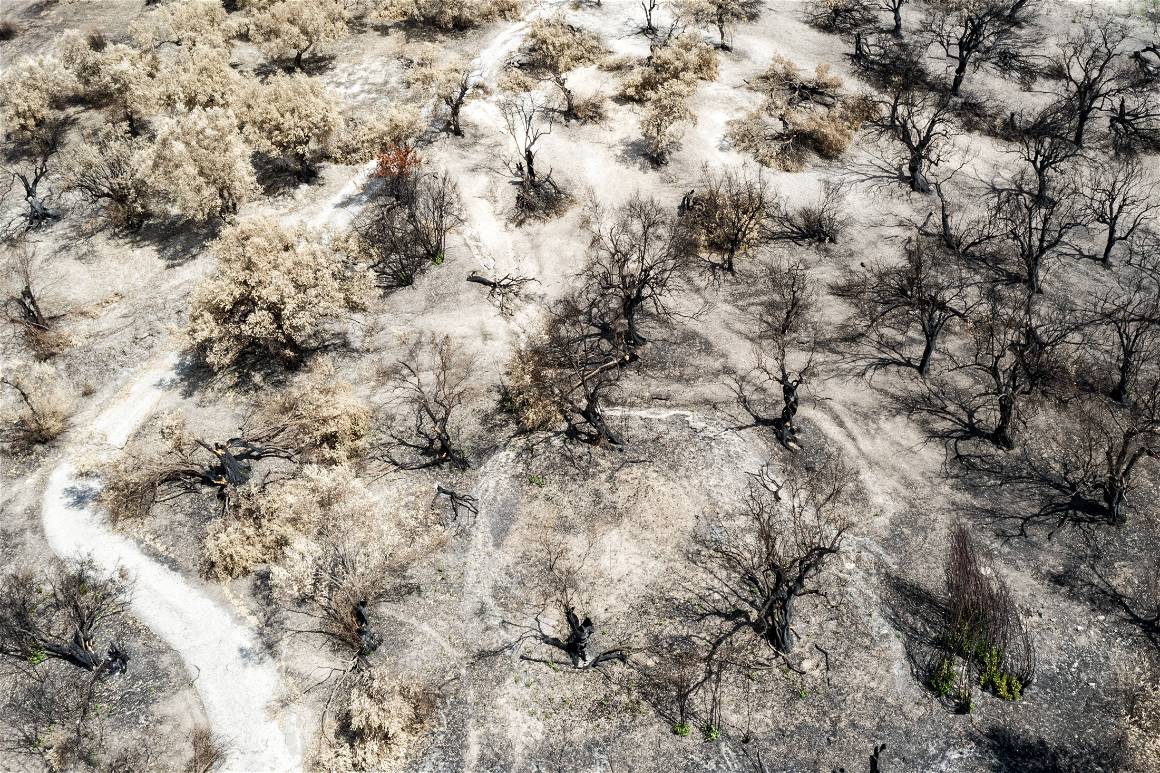
There were a lot of theories about the government’s lack of protocol in tackling the fires, and PM Kyriakos Mitsotakis even publicly apologized. Being there firsthand, what was the general sentiment among the local residents of Evia?
Local residents were extremely disappointed with the government response to the disaster. Residents feel the authorities failed both during the fires and after the fires actually finished. Most of the residents I encountered thought that there was not enough manpower or equipment sent to tackle the fires. Residents are also frustrated with lack of support for those who were badly hit. There are many people who claim they lost their livelihoods to the fire, their olive trees were burned, and their opportunities connected with tourism vanished. I must admit, though, I admire Evia residents. People that I met did not wish to go deep into frustration or despair. Their strength seems to come from strong communities, the togetherness and the connection they have with nature – with the soil and the sea.
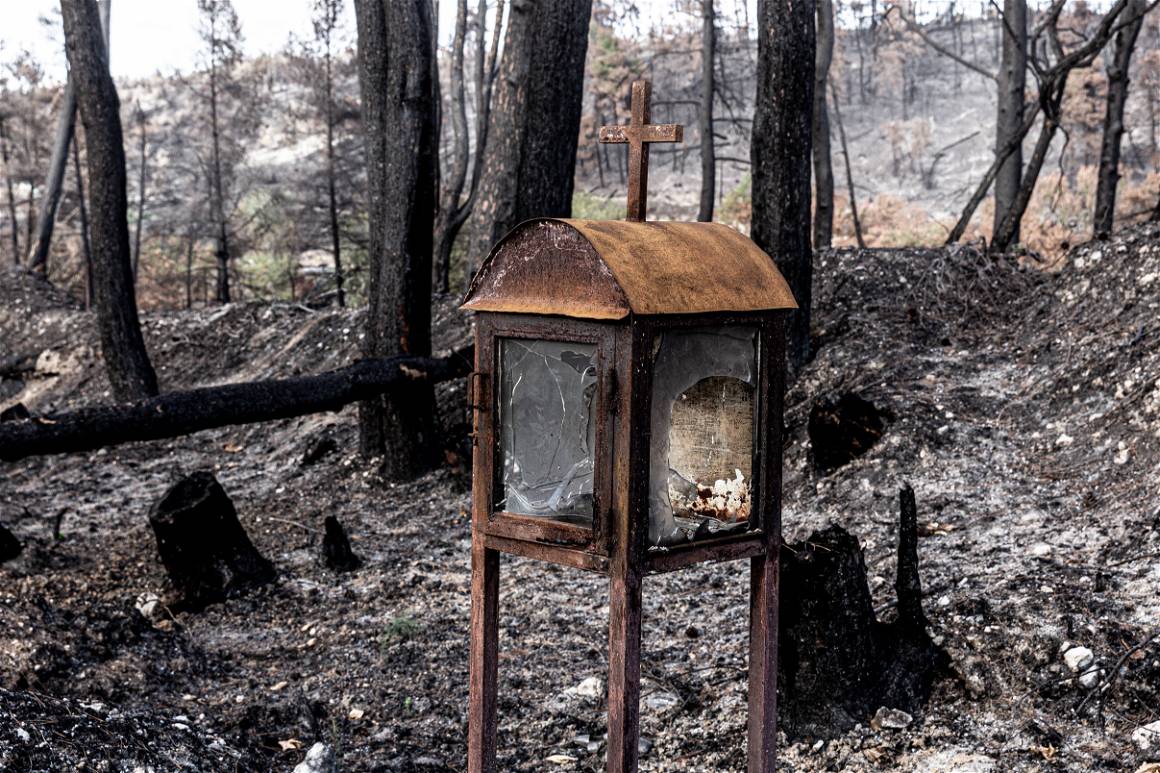
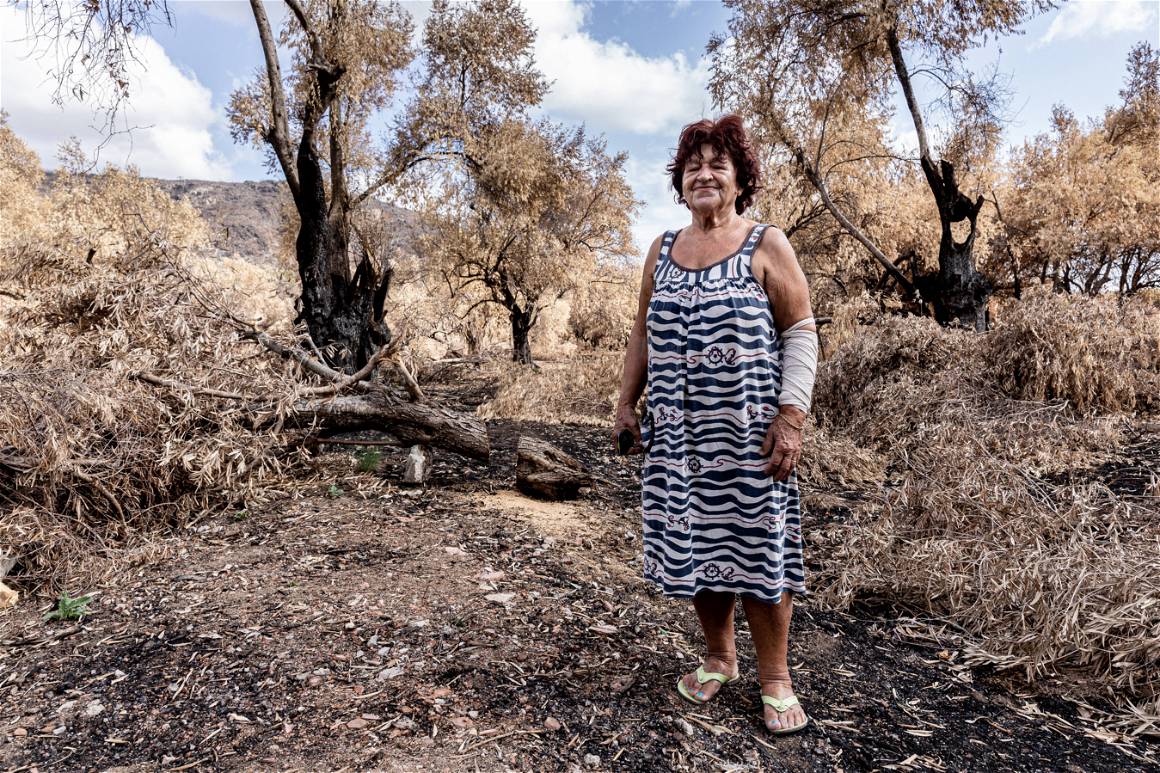
Looking forward, this will likely not be the last fire to hit the region. Do you personally feel that Greece has learned from this and will be able to handle what is to come?
Unfortunately, it is not the end of troubles for Greece. The country must prepare for many more extreme events, more droughts, more wildfires – and very likely also other natural disasters. It is going to take many years to adjust, Greece will need to introduce changes in agriculture, in natural disaster rapid response systems, in the way they build their houses. Greece is not the only affected country. We all will be affected in many different ways. It is not easy to prepare. We need to rethink how we can cooperate with nature in order to keep it and ourselves safe. It is a global problem. Now it is time for policy makers to listen to science.
COP26 is coming very soon and I very much hope that this COP will bring a more decisive approach. Boris Johnson, the host of COP26 and the PM of the United Kingdom is expected to make an announcement regarding sustainability of forests from a global perspective. November 2 is a day when decision-makers, the heads of states, will hold their summit at COP26. I am looking forward to the outcomes of this meeting.
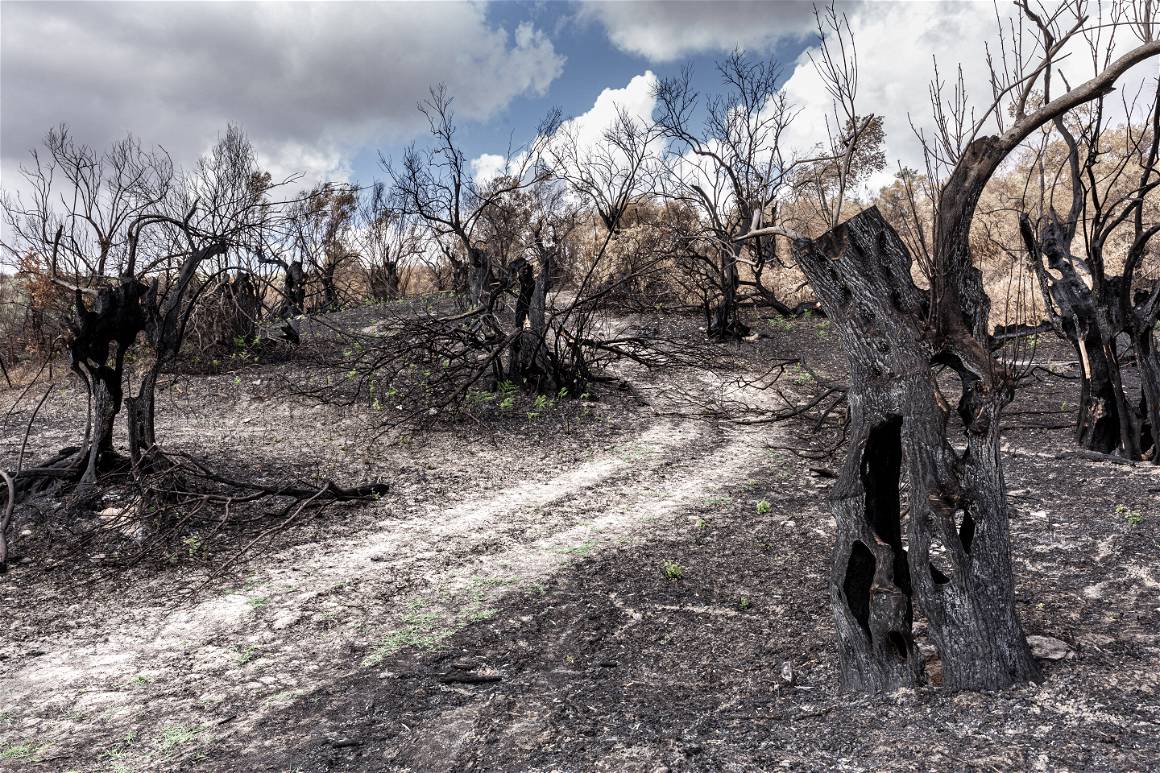
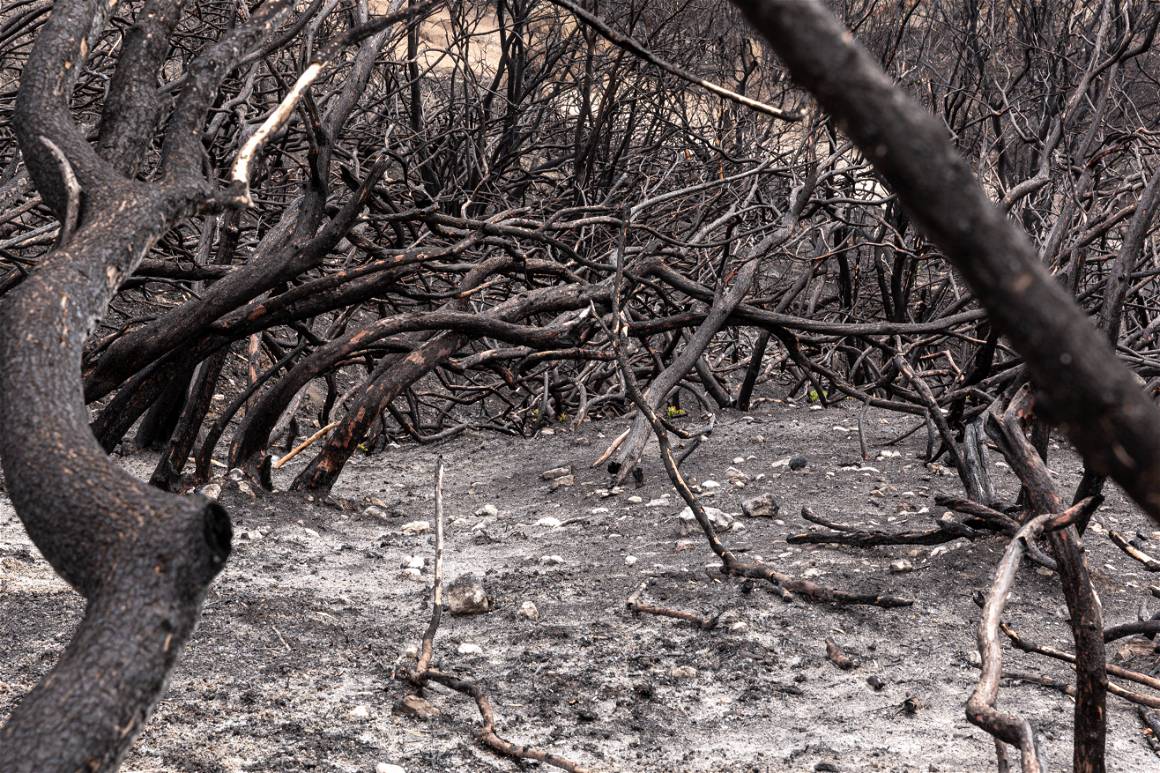
Words and image selection by Sofia Bergmann our Berlin-based columnist for The Game.


